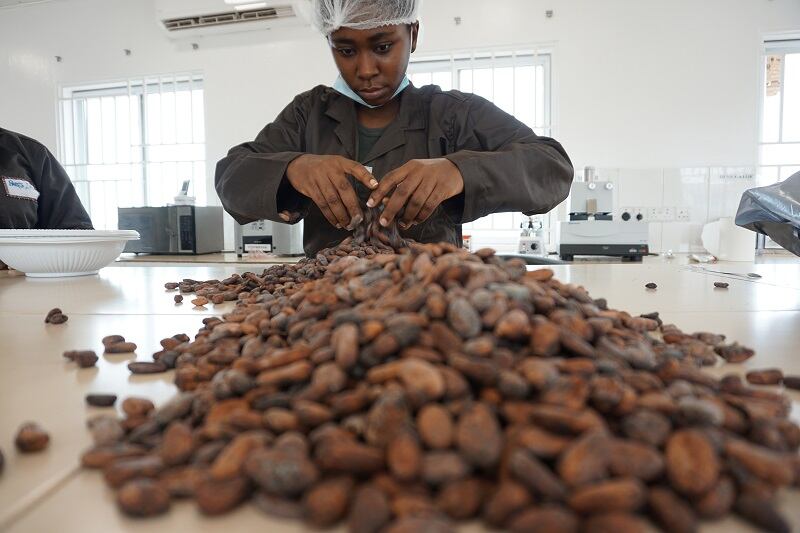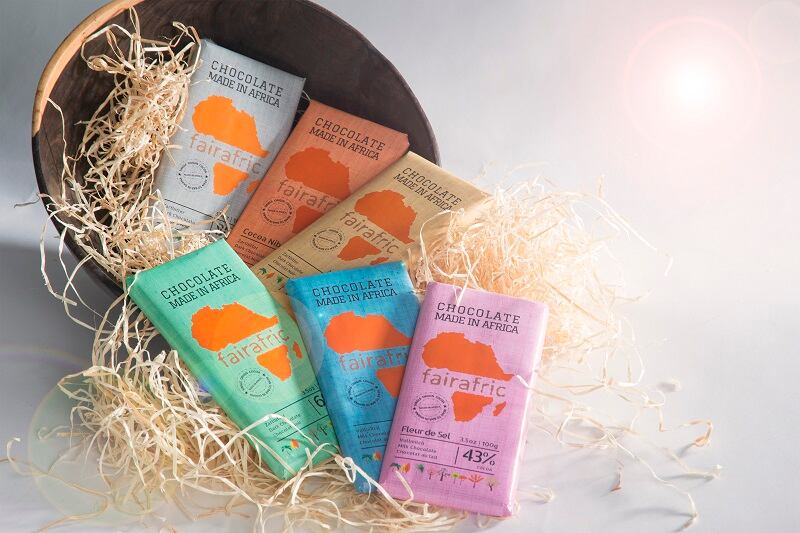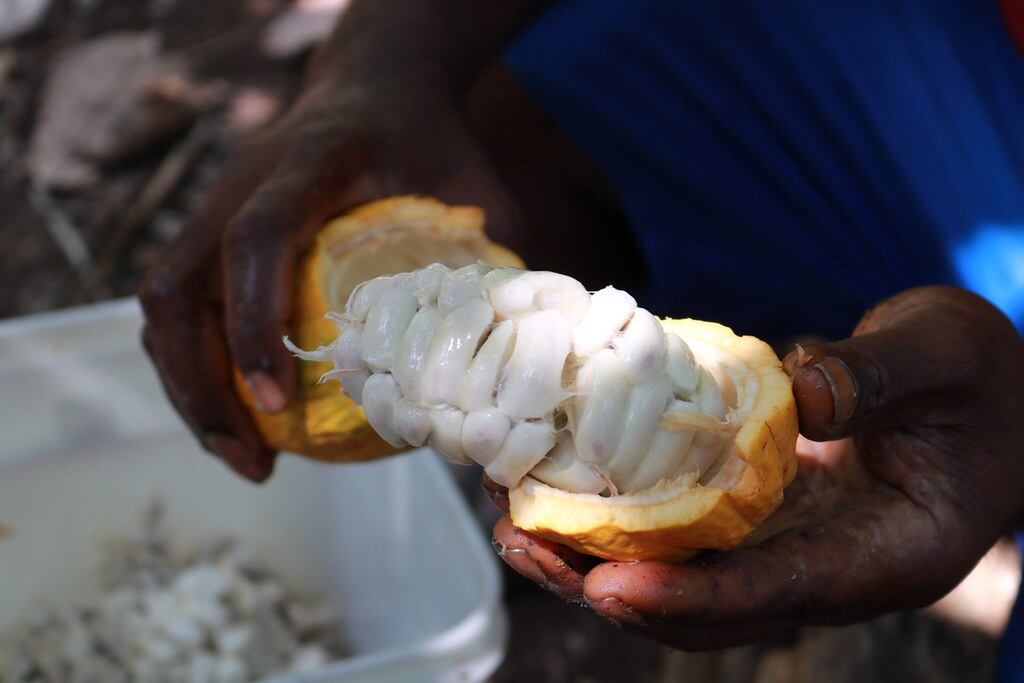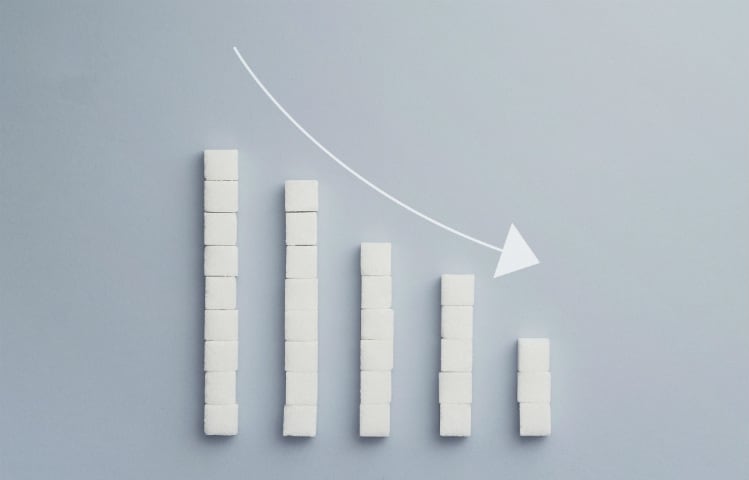Sustainability schemes like Fairtrade and UTZ Certified have improved farmer conditions, but have done little to improve poverty levels in developing countries, according to Fairafric, the producer of the first organic chocolate bar that is manufactured and packed in Ghana.
“In the cocoa sector, we have to say that these [certification] organisations have still not succeeded in overcoming poverty,” said the company’s head of sales, Julia Gause.
She told the 11th European edition of the Sustainable Food Summit held in Amsterdam recently that 70% of the world’s cocoa is grown in West Africa. At the same time, less than 1% of the world’s chocolate is produced in West Africa.
“If you look at Fair Trade certified farmers in the Ivory Coast, a study last year from Fair Trade Germany indicated that more than 50% of the families that grow Fair Trade certified cocoa still live below the poverty line. So we have to ask: is Fair Trade a solution or is there another way of overcoming poverty?”
Creating value at the source
The company’s answer lies in ‘decolonising’ supply chains for chocolate by producing in Ghana itself. The German firm shares the aims of the sustainability schemes, explained Gause, such as fair prices, wages and conditions. “But we want to redefine ‘what is fair trade’ as an idea,” she said. “The idea is to create truly sustainable development by creating jobs in the chocolate industry and beyond.”
What’s the actual impact?
The company claims that making organic chocolate in the West African country generates five times higher income for producers than sourcing cocoa alone. “If we bought the cocoa beans from Ghana the market price is around $2,000 per tonne. Instead, we deliver an income worth $10,000 per tonne so we multiply the local income for the country of origin,” noted Gause.

The supply chain
The only thing done by the company at its base in Germany is sales and marketing, packaging and the planning of production. With this approach, the company hopes that many people in Ghana can become part of the middle class and afford a good education for their children. Instead of just exporting the cocoa beans, the local economy is supported and well-paid jobs in the chocolate production are created. Last year, Fairafric started making its cocoa farmers in the country brand co-owners by buying them shares in the company.
Fairafric uses beans produced by around 1,400 small-scale farmers in the Suhum and Volta Region growing areas. The farmers belong to the Yayra Glover cooperative, which is the only cooperative in Ghana to mostly sell certified-organic cocoa beans. According to Fairafric, the farmers are trained in improving the yields and overall health of their farms while attaining much higher bean quality. They are paid a premium of US$600 compared to Fairtrade and UTZ’s premium of US$200 and US$102 respectively.
The cocoa produced by the farmers goes to Niche Cocoa’s processing factory located near the country’s largest container port in Tema. Here, there are around 300 workers, 25 of whom produce Fairafric’s chocolate. “These are well paid jobs,” said Gause. Entry-level jobs pay US$225 per month. Workers have opportunities to earn more with time and increased responsibilities. They receive health insurance, a pension plan and are paid for any extra hours.
The company aims to triple production and sales compared to 2018 and upgrade its current chocolate production facility. It also wants to increase its impact by moving its packaging (currently produced in Germany) to Ghana and by offering a chocolate school to young chocolatiers in 2020.
‘We are dependent on customers buying the story behind the product’
This approach does hinge however on consumers being prepared to pay a premium by buying in the story behind impact driven consumerism. “The price for the bar is definitely not the cheapest you can find in the market. In Germany, it is sold at three euros per 100 grams. So we are very dependent on customers being willing to buy the story behind it.”
Fairafric’s message to its shoppers is that ‘ethically correct consumption’ alone will not save the world, but it can have tremendous impact.
“Thanks to your buying decision, we are able to establish the fair value chain in Ghana, pay fair wages, offer training and employment, preserve the environment through organic farming and thereby promote biodiversity,” it states.
“Thanks to your purchase of Fairafric chocolate, our farmers can use the additional income they receive through our incentives to send their children to school and to build better homes. In addition, they are joining forces with us - and indirectly with you – against the global supply chains that do care neither the people nor the environment.”




